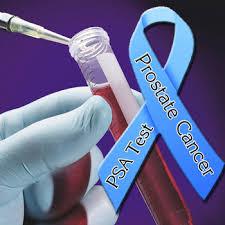The PSA Test for Prostate Cancer
July 10, 2016 | Author: Susan Silberstein PhD
For many years, the PSA (Prostate Specific Antigen) test was regarded as the gold standard biomarker for assessing prostate cancer and prostate health. However, research now demonstrates that regular PSA screening does not necessarily improve outcomes. There are many possible reasons for this, and many doctors do not recommend that screening test at all.
What is PSA?
Prostate-specific antigen is a protein produced by both cancerous and noncancerous prostate tissue. Prostate cancer cells usually make more PSA than do benign cells, causing PSA levels in the blood to rise. However, because PSA levels can also be elevated in men with enlarged or inflamed prostate glands, determining what a high PSA score means can be complicated. Furthermore, PSA levels can fluctuate, which can be very upsetting to people who ride the PSA yo-yo for fractions of a point in either direction. According to the Mayo Clinic website, there are a number of pros and cons to the PSA test.
Benefits of PSA Screening
- PSA screening may help men detect prostate cancer in the early stages of disease, when it is easier to treat and more likely to be cured.
- PSA testing can be done with a simple, widely available blood test.
- For some men, knowing is better than not knowing. Having the test can provide you with a certain amount of reassurance — either that you probably don’t have prostate cancer or that you do have it and can now take pro-active steps.
- The number of deaths from prostate cancer has gone down since PSA testing became available.
Cons of PSA Screening
- PSA tests aren’t foolproof. It’s possible for your PSA levels to be elevated when cancer isn’t present, and to not be elevated when cancer is present.
- There is no specific normal or abnormal level of PSA in the blood. In the past, most doctors considered PSA levels of 4.0 ng/mL and lower as normal. However, more recent studies have shown that some men with PSA levels below 4.0 ng/mL have prostate cancer and that many men with higher levels do not have prostate cancer.
- Various non-cancer factors can cause a man’s PSA level to fluctuate. For example, a man’s PSA level often rises if he has prostatitis or a urinary tract infection. Prostate biopsies and prostate surgery also increase PSA levels. Conversely, some drugs used to treat benign prostatic hypertrophy (BPH) lower a man’s PSA level. PSA levels may also vary somewhat across testing laboratories.
- The PSA test does not measure the cancer’s aggressiveness. Many prostate cancers are slow growing, never spread beyond the prostate gland, and do not necessarily pose a threat. Therefore, not all prostate cancers need treatment.
- Regardless, once the disease has been detected, the standard approach is to attack it with conventional treatments like surgery, drugs, and radiation . This raises the problem of unnecessary, invasive procedures and their side effects, including urinary incontinence, erectile dysfunction or bowel dysfunction.
- The reduction in deaths as a result of PSA testing may not be substantial enough to justify the cost and possible harm to the person undergoing the testing.
For a more accurate picture of prostate cancer and prostate health in general, many clinicians recommend that the PSA test be taken in context with a digital rectal exam and / or other diagnostic tests. According to a growing number of researchers and prostate cancer experts, this includes the galectin-3 biomarker assay — which I will discuss in a future blog.
Join the conversation: Ask Holistic Cancer Coach Facebook Group
